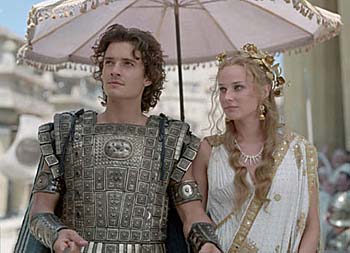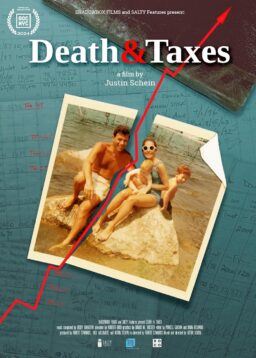Q. First came the video rental store that cut out the naughty bits. Now, you can get your own DVD player to do it for you! At what point does someone just watch the entire film and judge it for themselves? I know it’s hard because they might actually have to think through their own censorship opinions. Patrick J. Doody, Hollywood
A. You are obviously referring to ClearPlay, a DVD player that censors video discs while you’re watching them. It works with some 600 DVDs, and the list is growing. You download the filters and use them with a ClearPlay-enabled machine, which skips over parts deemed unsuitable. Michael Medved is quoted on the Web site: “Movie fans who have been worried about excesses in violence, sexuality and language can now enjoy their favorite films with a sense of security and satisfaction.”
If they want to quote me, they can use this: Imagine watching “The Passion of the Christ” with an hour skipped because of violence! Imagine “Kill Bill, Volume 2” as a 25-minute short subject! Imagine “Taxi Driver” without most of the dialogue!
My feeling is, either watch the movie or don’t watch it. There are countless films suitable for family viewing. If you subject an R-rated film to the indignity of the ClearPlay approach, you are not experiencing the film’s continuity and editing rhythm, and may miss information essential to understanding it. My additional feeling is, I’m damned if I’m going to pay to let some video jockey decide what I can see.
Yes, I know, some parents will want it for their children. I would like to meet the parents who want their little ones to see the ClearPlay versions of R-rated movies, so I could ask them: What’s the point? Why not just rent films appropriate for your kids?
On the other hand, what about parents who WANT their kids to see R-rated films? Read on to the next item.
Q. Not so much a question, but a statement from someone on the other side of the counter. I’m a manager at a “chain” theater. I can no longer count on my fingers and toes the number of times that I and my employees have been berated by parents, because we would not sell their under-17 children tickets to “Kill Bill” or “Eurotrip” or “The Punisher” or some other movie that the parents don’t want to “have to watch.”
Some parents just don’t care if their kids watch R-rated movies. Some even create their own R-rated dialogue at the theater over the inconvenience of having to buy their children’s tickets and escort them to the auditorium.
I realize that the R-card is really just symbolic, because kids without it will still just try to sneak in like they do now. It will, however, give that theater’s employees an alternative to give to some of their unhappy customers. Name withheld, Oregon
A. I got a lot of mail from readers unhappy with my comments about the “R card,” which a theater chain in Downstate Illinois is introducing. Parents can sign a form authorizing their under-17 children to see R-rated movies, and then the kids are issued an ID with their photo on it. “The worst idea I’ve ever heard,” ratings czar Jack Valenti told me.
“Isn’t the R-card the same as what Blockbuster and Hollywood video do?” asks Christopher Roberts of Dayton, Ohio. “When you have your children put on your card, you can approve them to see anything they want or exclude them from R-rated rentals. Certain R-rated movies should be seen by teens (“Blue Car” (2003), for example). The R rating seems almost arbitrary anyway, since the MPAA doesn’t have a usable adults-only rating and any kid can purchase a PG-13 ticket and walk into an R-rated movie.”
And Jeffrey Perkins of Chicago writes: “I am the father of a very mature 16-year-old, and there are plenty of R-rated movies that I think he should be permitted to see, but I simply do not have the time to take him to all the ones he desires to view. The R-card is a great way for us to be able to parent our kids without the oppressive rules of the MPAA.”
Q. Thought you might like to check out an obvious “continuity goof” in the movie “Troy.” On the movie’s Web site, there’s a photo of Orlando Bloom and Diane Kruger under what is obviously a pretty umbrella with some rather modern 18th century ribs and an opening apparatus. Oops! Looks like someone took a shortcut there! Sue Heller, Palm Springs, Calif.
A. At least no one is wearing the wristwatch from “Spartacus.”
Q. In your review of “Godsend,” you noted that the director “shot at least seven alternate endings to the movie.” Admittedly, some films can only be helped by a different ending or, in some cases, a different script, but when I hear about a movie with SEVEN alternate endings, it sounds wishy-washy.
Who is the director trying to please: himself, me, or the test audience? Imagine if movies like “Requiem for a Dream,” “The Wages of Fear” or “Butch Cassidy and the Sundance Kid” had been altered because audiences (or worse, executives) thought their endings were too downbeat! Why not shoot alternate versions of the beginning and the middle while you’re at it? Miguel E. Rodriguez, Tampa, Fla.
A. I quoted fellow critic Joe Leydon, who found a report that Nick Hamm shot at least seven alternate endings, including those in which two different characters are killed two different ways, and little Adam kills everybody. My fervent hope is that all of these endings are included in the bells and whistles on the DVD version. Studios do sometimes change endings on the basis of test audiences, and many good directors have said they learn a lot from test screenings. But often test audiences do not represent the target audience for a given movie, and their input is uninformed or irrelevant. At some point the director has to decide what he really believes in.
Q. Someone asked you why you gave away The Bride’s real name in your review of “Kill Bill, Volume 2.” You replied, “I don’t know what came over me.” I am wondering: Why did Tarantino bleep her name in the first place? Reint Schoelvinck, Amsterdam
A. I thought it was entirely a stylistic device, and that there was no need to suppress it, but by doing so, he created a momentary aura of secrecy and suppression. Then, in the second movie, we got that aha moment when the name is revealed. Pretty cool, kiddo.
Q. Let me just add my voice to any others over one piddling little detail in your review of “Intermission.” It’s called “Daddy’s Sauce.” not “Dad’s.” And for the record, even though many of us use the term “Daddy’s Sauce” to mean brown sauce in general (just as all vacuum cleaners are called Hoovers), HP is still the better of the two sauces, and it really, really isn’t all that bad in coffee. Simon Walker, Austin, Texas
A. Since it’s hard to get Daddy’s Sauce and HP Sauce in North America, have you tried A-1 or Heinz Steak Sauce? How do they taste in coffee? What about Worcestershire, my favorite? Louisiana Hot Sauce?
Q. “Kill Bill, Volume 1,” four stars. “Kill Bill, Volume 2,” four stars. “All About Eve,” four stars. “Patton,” four stars. Are all four-star movies created equal? M. Reece, Jacksonville, Fla.
A. The star rating system is the bane of my existence. Here’s a message from Jason Eaken of Warrensburg, Mo., who points out that I gave negative reviews to “The Usual Suspects,” “Fight Club” and “The Ladykillers,” but positive reviews to “The Fast and the Furious,” “Ghosts of Mars,” “Taking Lives” and “High Crimes.”
True, I did. But in the reviews I tried to explain how I felt; just counting stars makes me seem simpleminded. I have always awarded stars in a relative, not an absolute way, based to some degree on a movie’s success in doing what it wants to do, and what the audience expects from it. Of course, if you think stars are limited, you ought to try working with thumbs.
Q. I am sending this message on behalf of my boss, R. Kenton Nelson. In your review of the film “Something's Gotta Give” you gave an artist credit for the paintings in the Hampton house. Unfortunately Jack Vettriano is not the master of these paintings. R. Kenton Nelson is the master. A retraction would be a step in the right direction. Jeffrey Treloar, Pasadema, Calif.
A. Retracted, with apologies.












